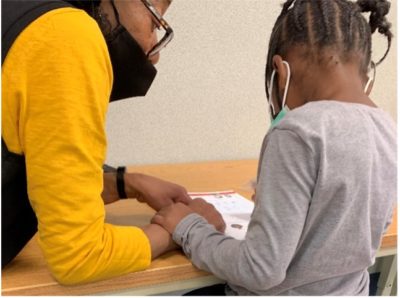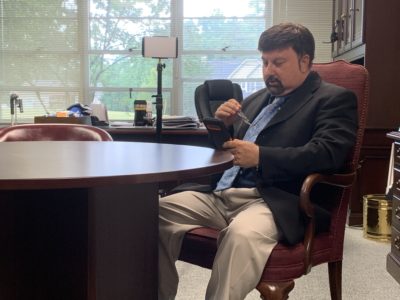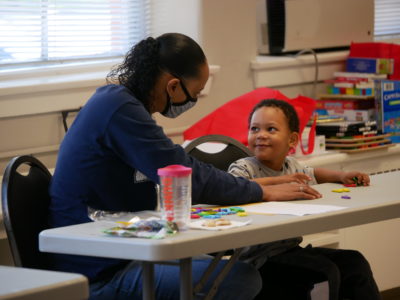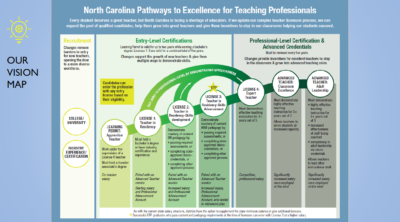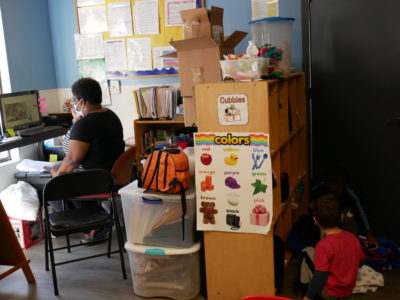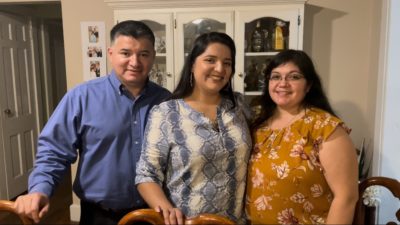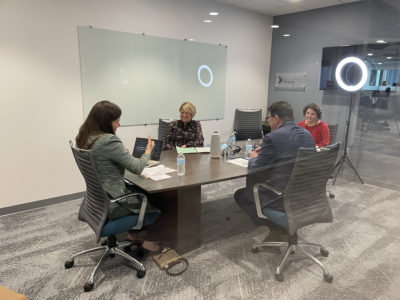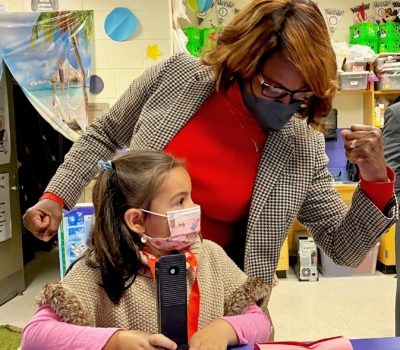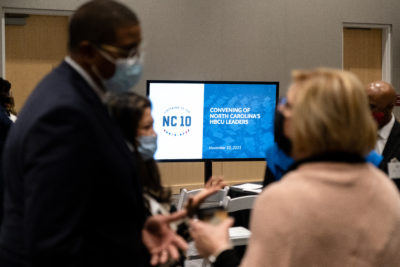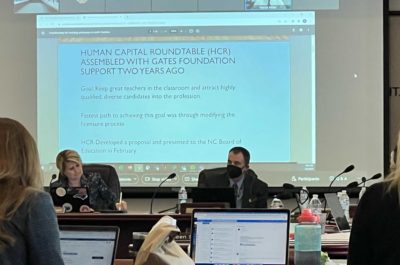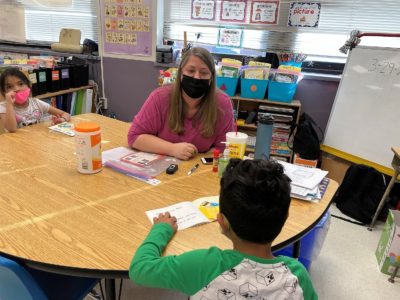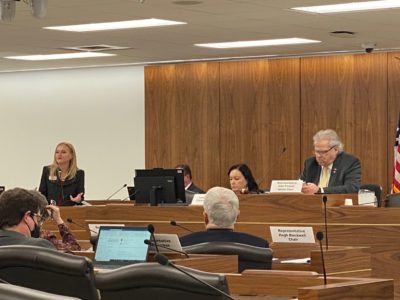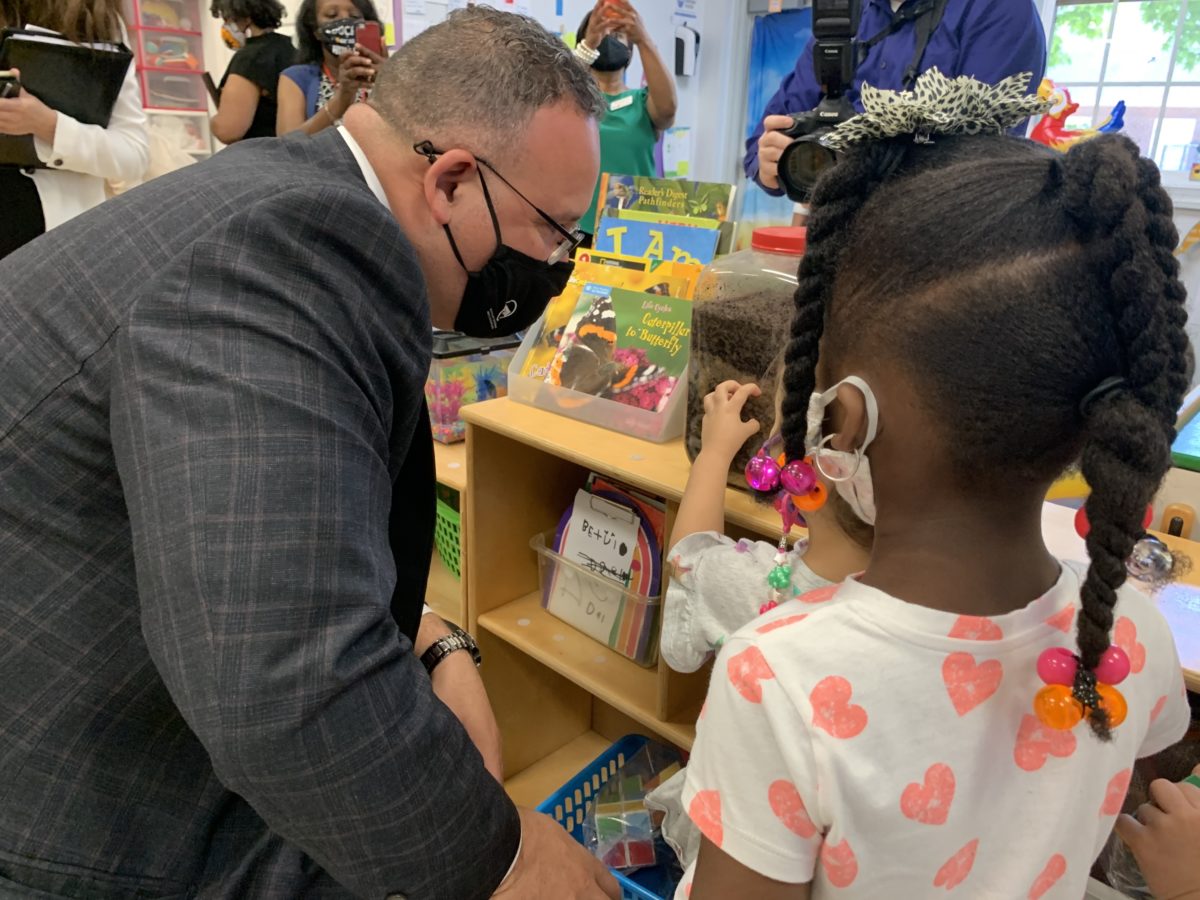
|
|
U.S. Secretary of Education Miguel Cardona last week encouraged educators and leaders to press forward during a challenging time for schools navigating the omicron surge, staff shortages, and heightened mental health needs.
“We can’t lose this moment, this chance for a reset in education,” Cardona said in an address sharing the Department of Education’s vision for preschool-through-adult learning.
“It’s our moment not only to keep schools open but also to address the inequities that have existed in our school systems for far too long,” Cardona said.
Watch the entire address below.
He outlined the department’s priorities in three categories:
1. “We must make up for lost time.”
Cardona called for increased mental health supports, highlighting President Biden’s goal of doubling mental health professionals in schools.
He called for tutoring and other evidence-based practices to help children catch up — challenging district leaders to provide 30 minutes of intensive tutoring a day, three times a week, for each child.
Each student should participate in at least one extracurricular activity, he said. “All kids must be seen.”
American Rescue Plan funds are now in districts’ hands to help with recovery. Cardona said parents and students themselves should have a voice in deciding how those funds are used.
What’s happening in NC?
2. “Let’s turn crisis into opportunity.”
Cardona said the department is putting a priority on closing persistent gaps in opportunity and achievement that are based on race, income, zip code, language, disability, and other differences.
“We’re either closing educational opportunity gaps or making them worse with the decisions we’re going to make in the next coming months and years,” he said.
He called for increased funding for:
- Title 1 schools
- The Individuals with Disabilities Education Act
- Universal pre-K and affordable high-quality child care
- Compensation, professional development, and working conditions for recruitment and retainment of educators from all backgrounds
Cardona also acknowledged that federal money is not the only part of the equation. “We need our states and our districts to take a really hard look at their own ways of funding schools, and for those leaders to make difficult decisions to fix broken systems that perpetuate inequities in our schools across the country.”
3. “We must transform education beyond high school.”
“Today too many talented Americans are choosing against enrolling in higher education due to the fear of debt and the feeling that college is just out of reach,” Cardona said.
Cardona said the department is committed to making postsecondary education more affordable and holding institutions of higher education accountable. He called for improvements to the public service loan forgiveness program.
He also called for better pathways from education to career — including more high school career counselors — and affordable opportunities for adult learners to return to school.



